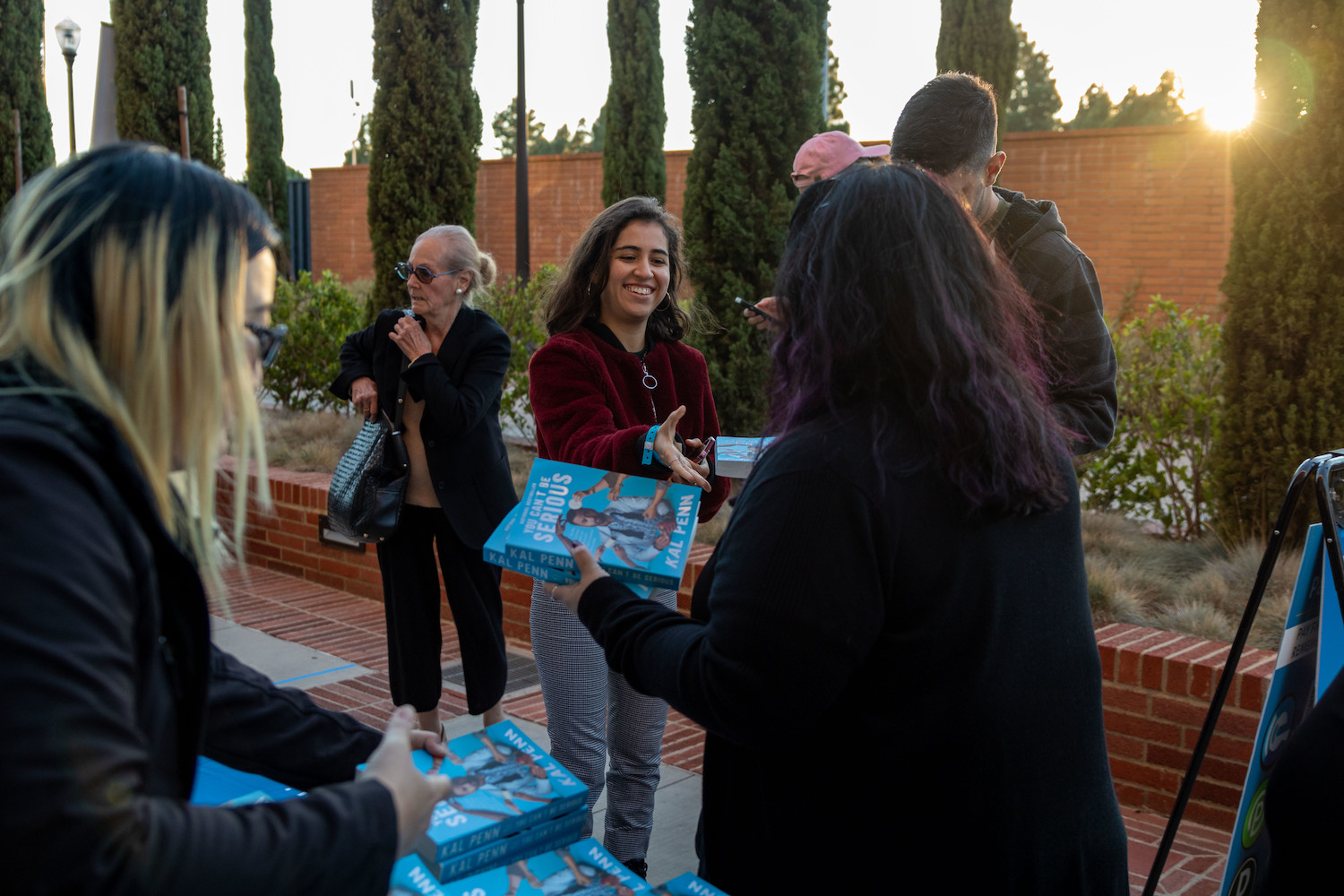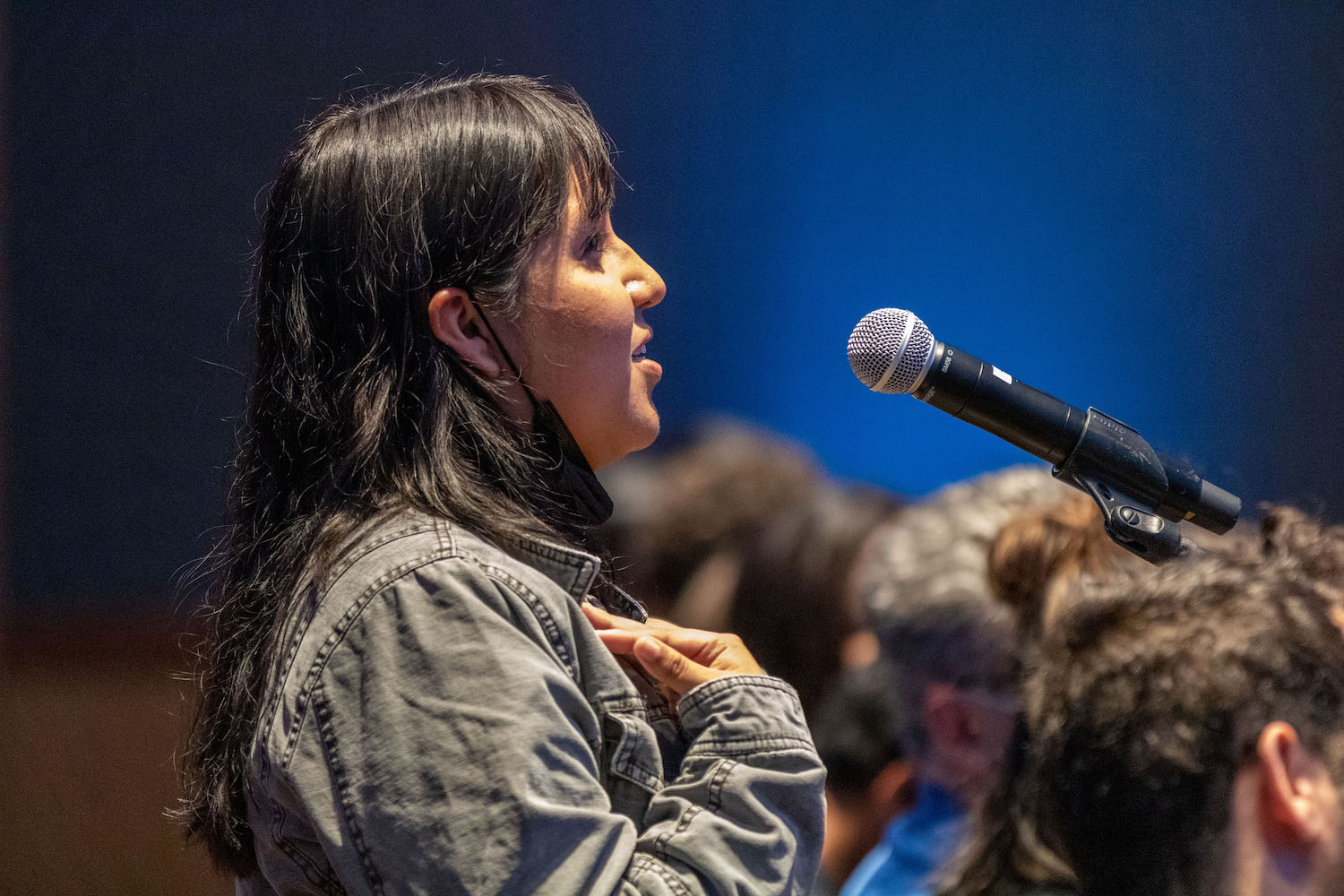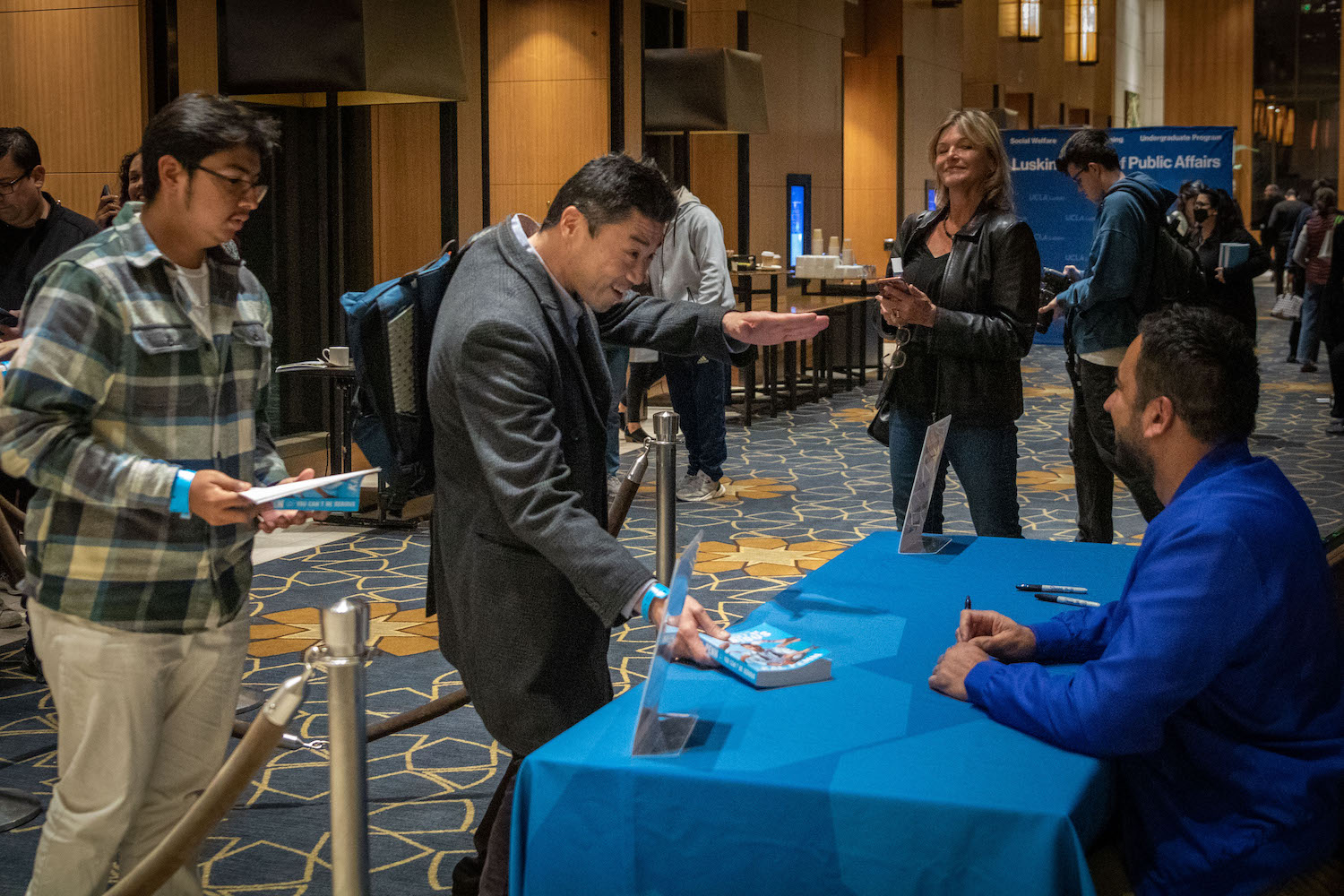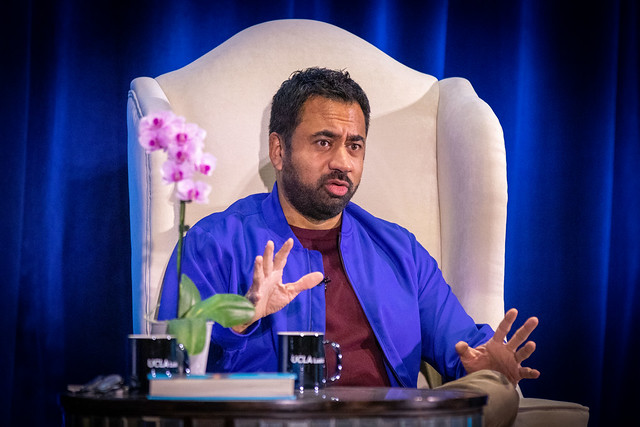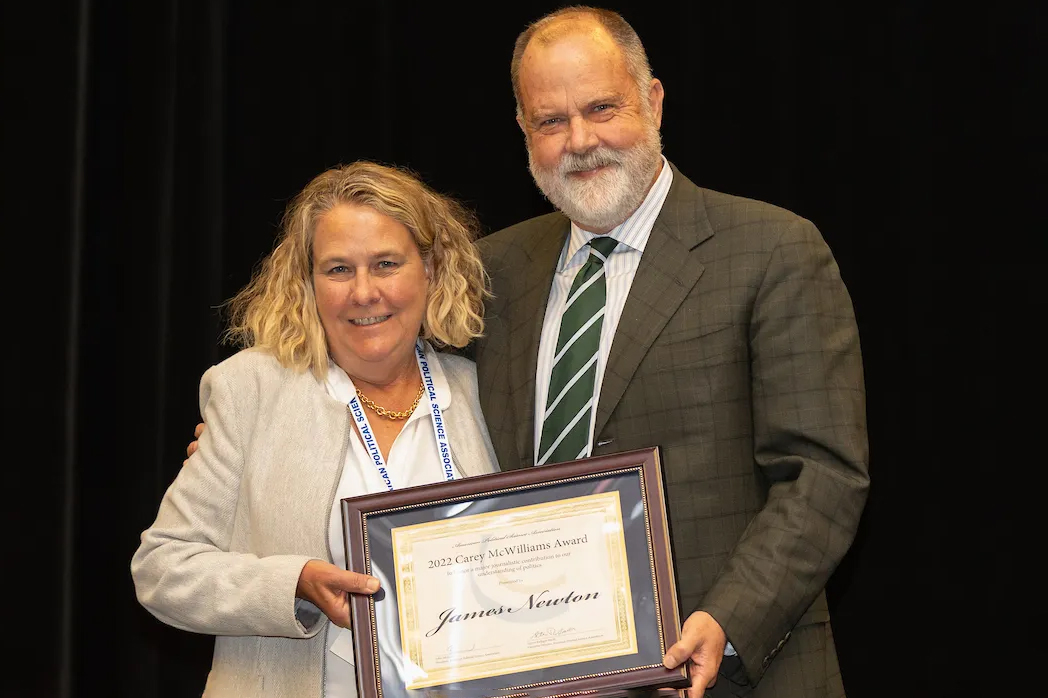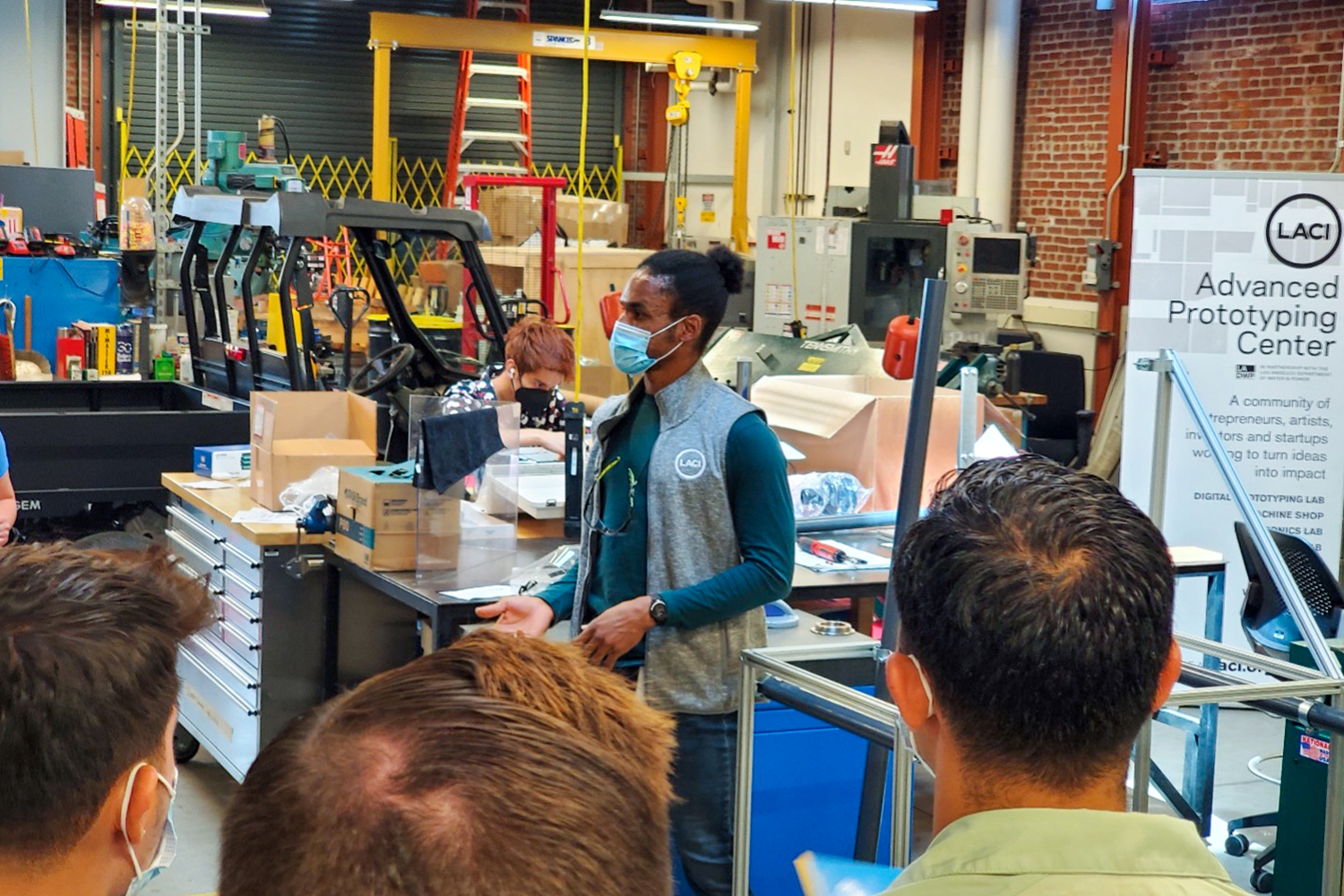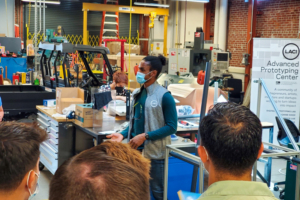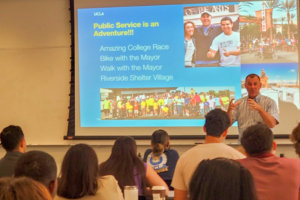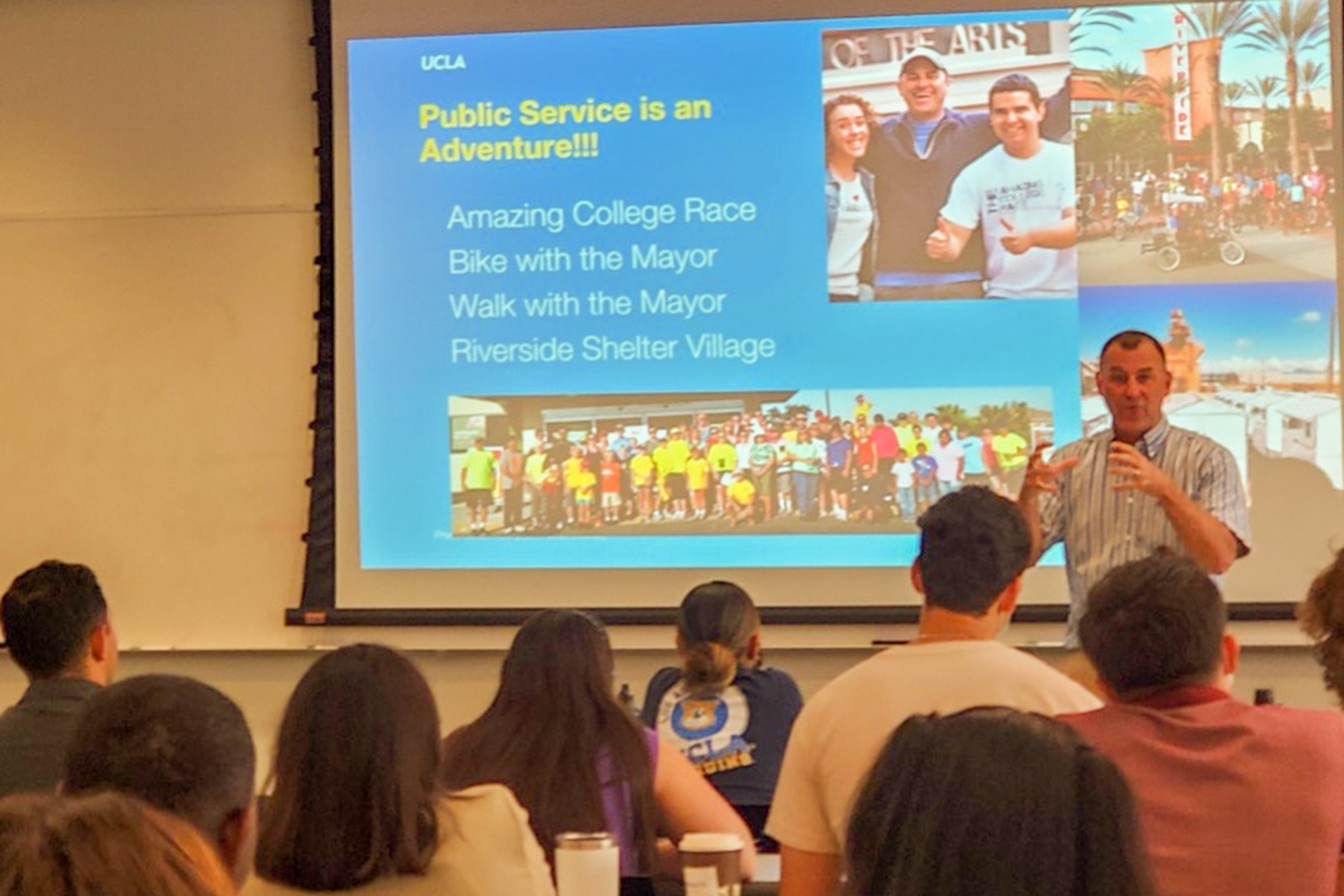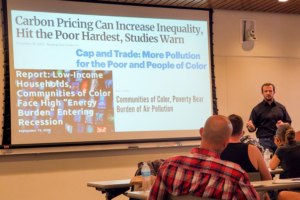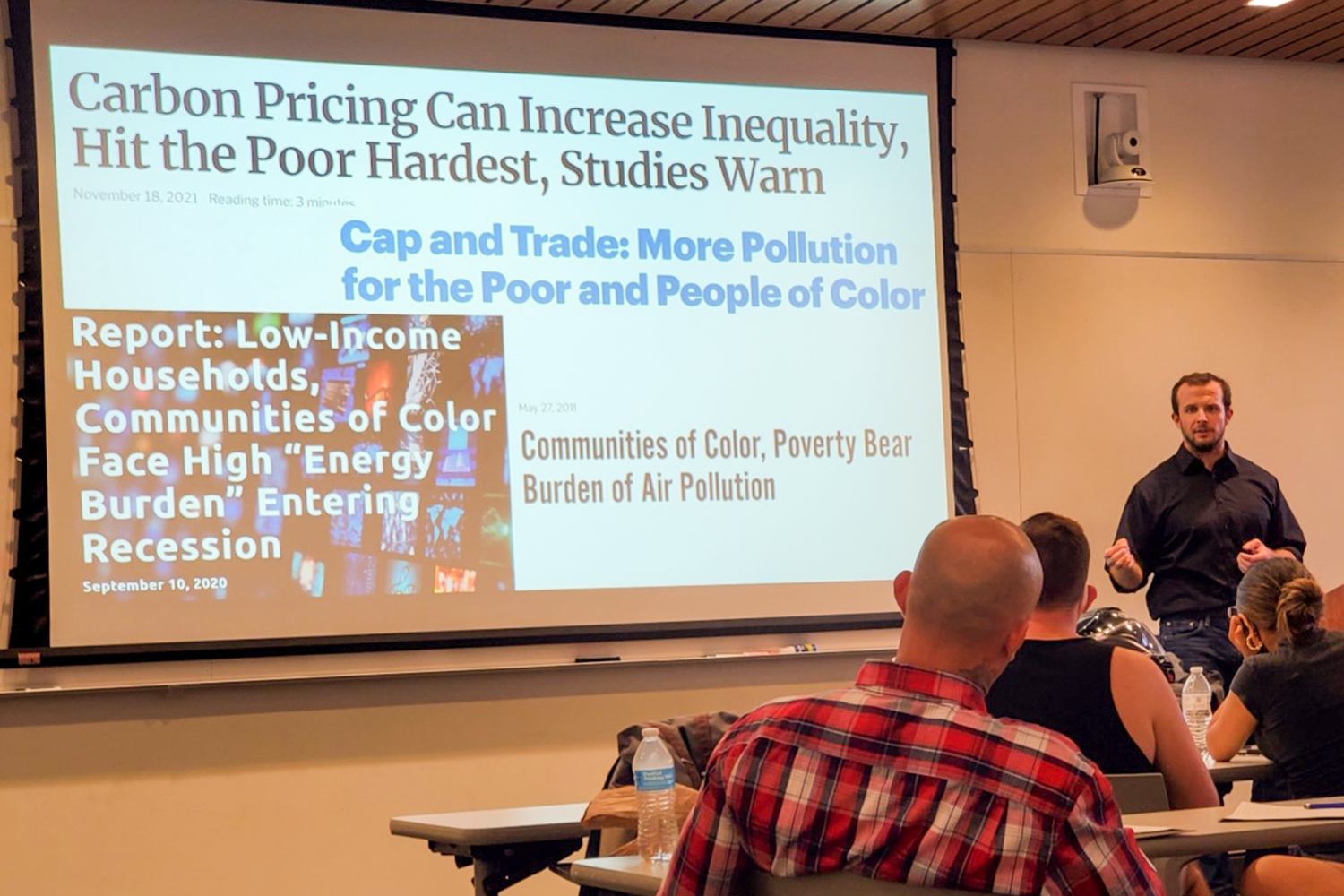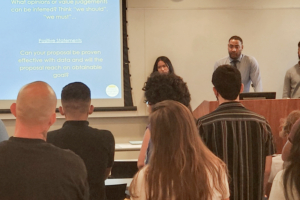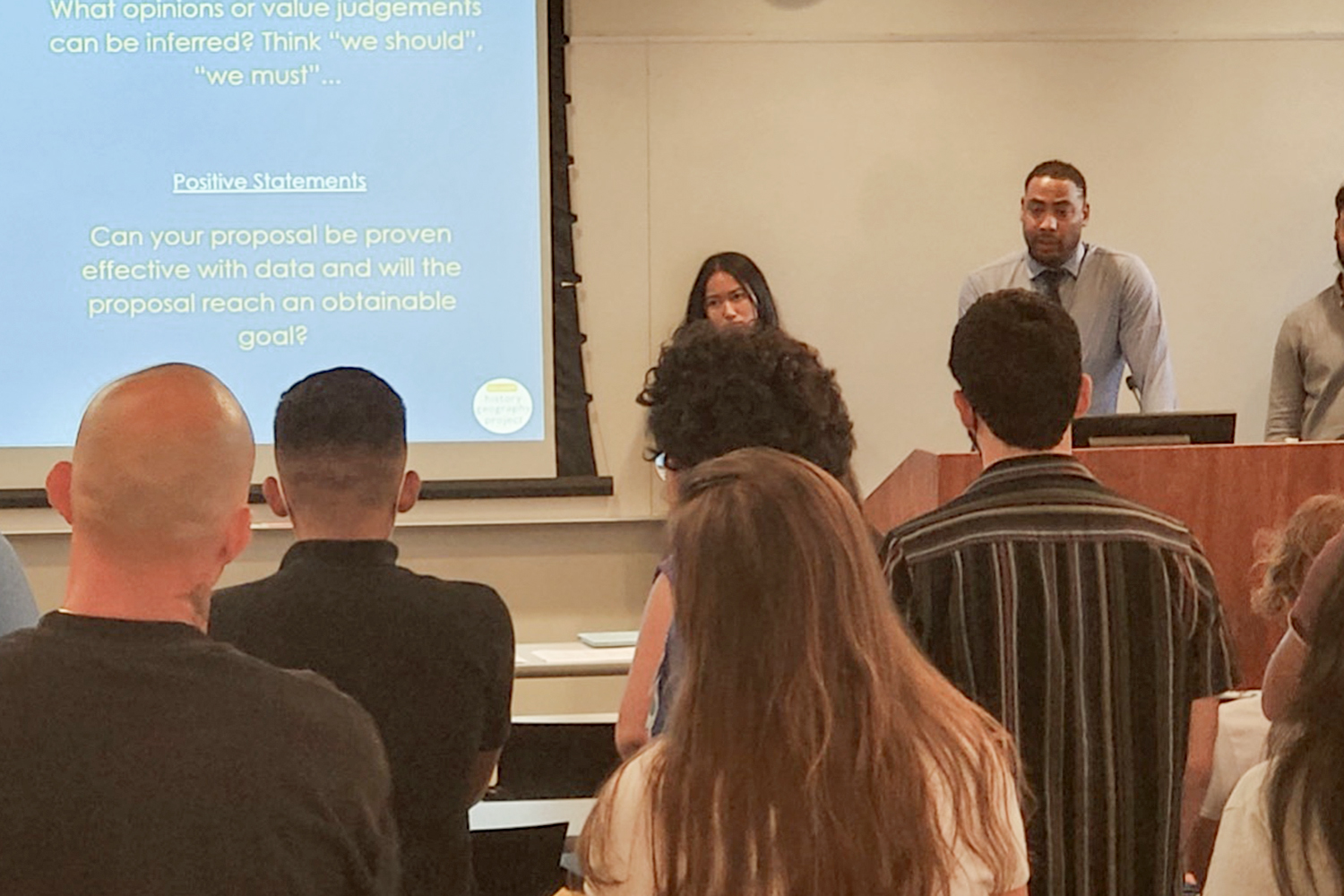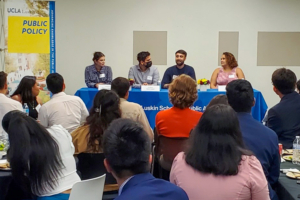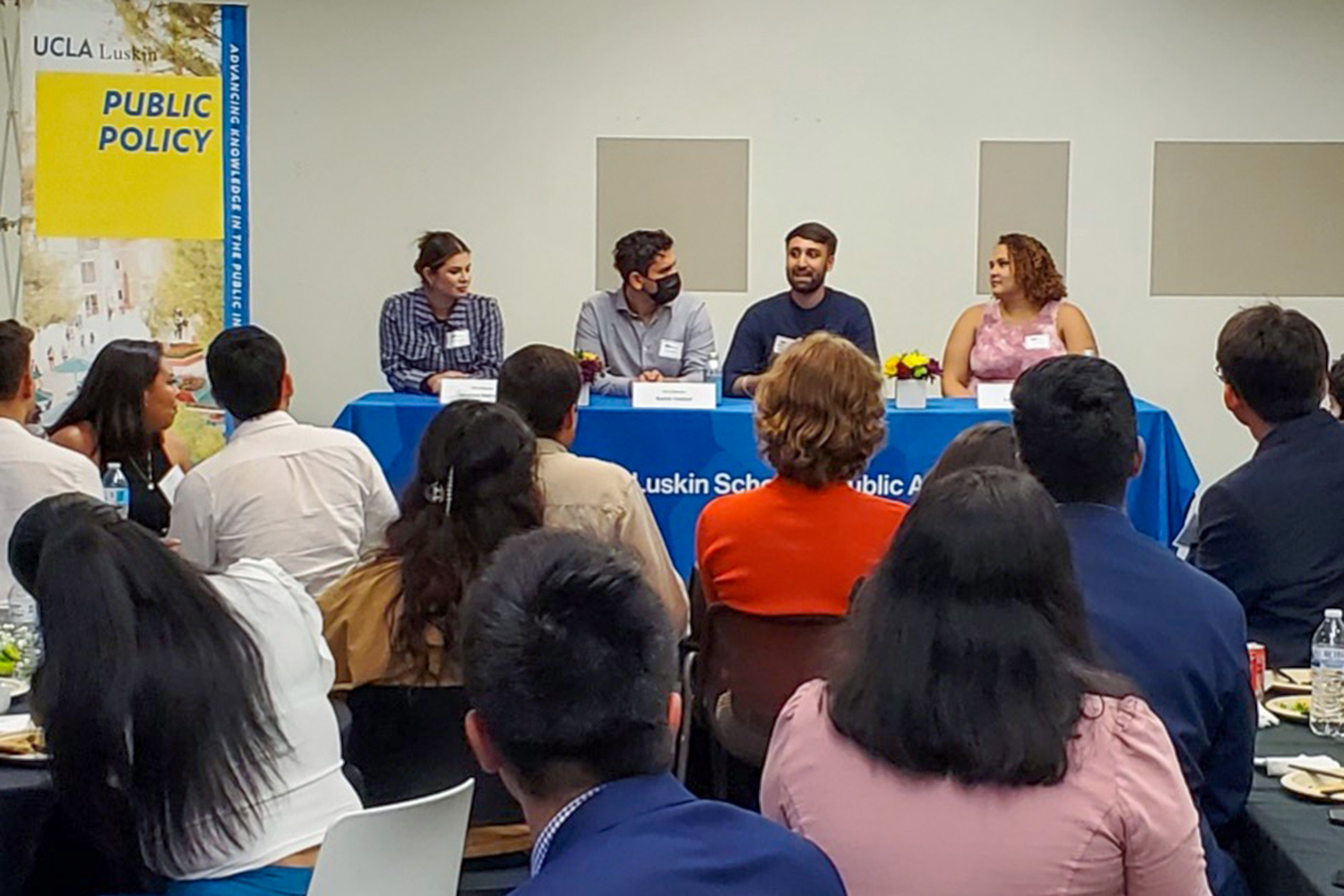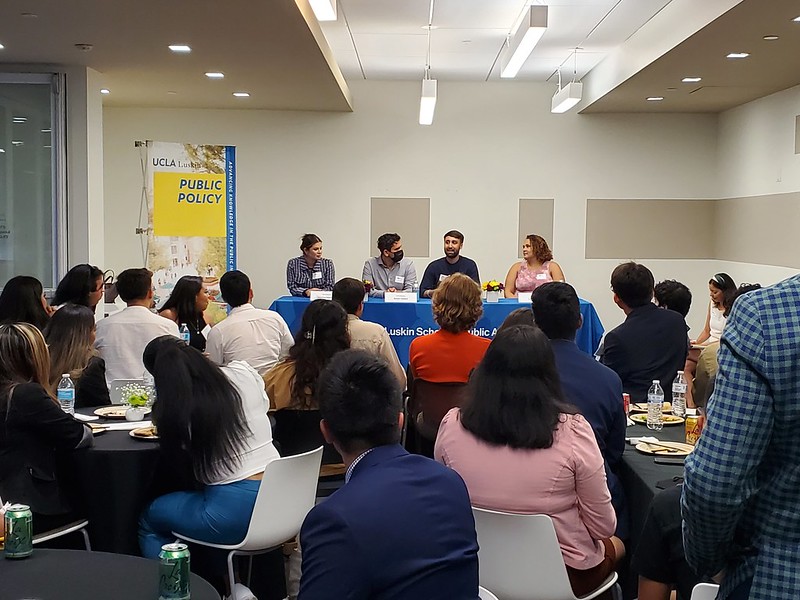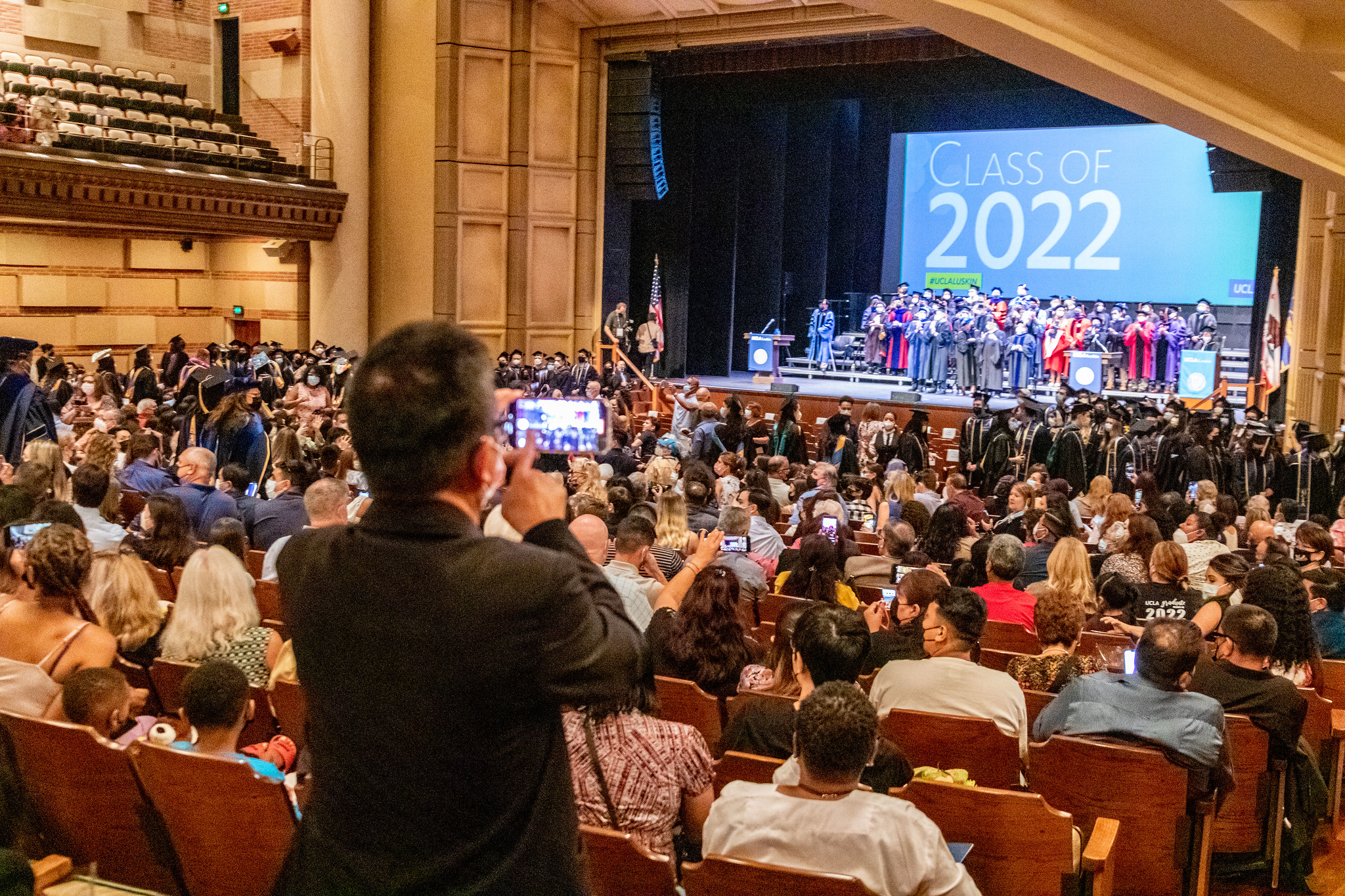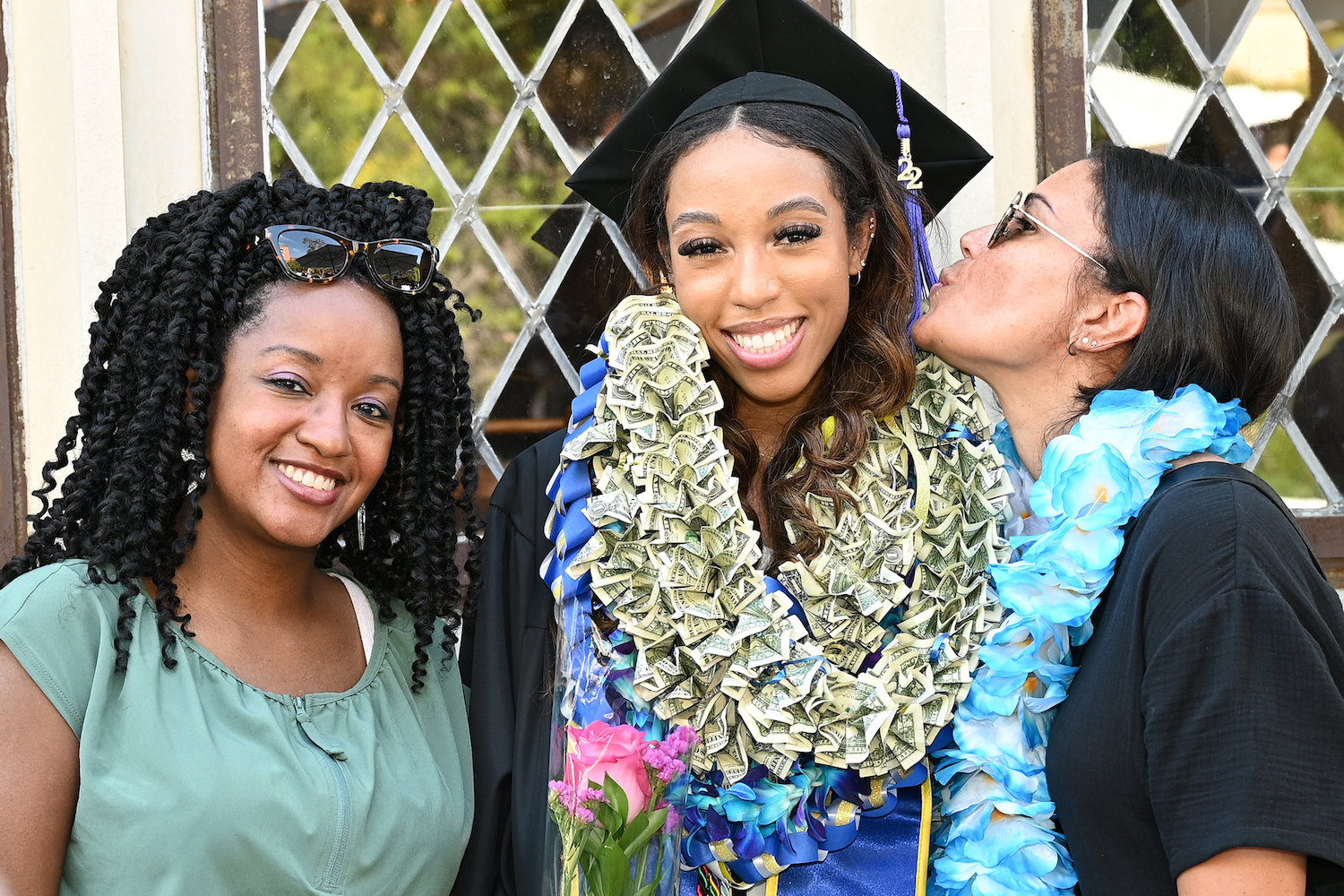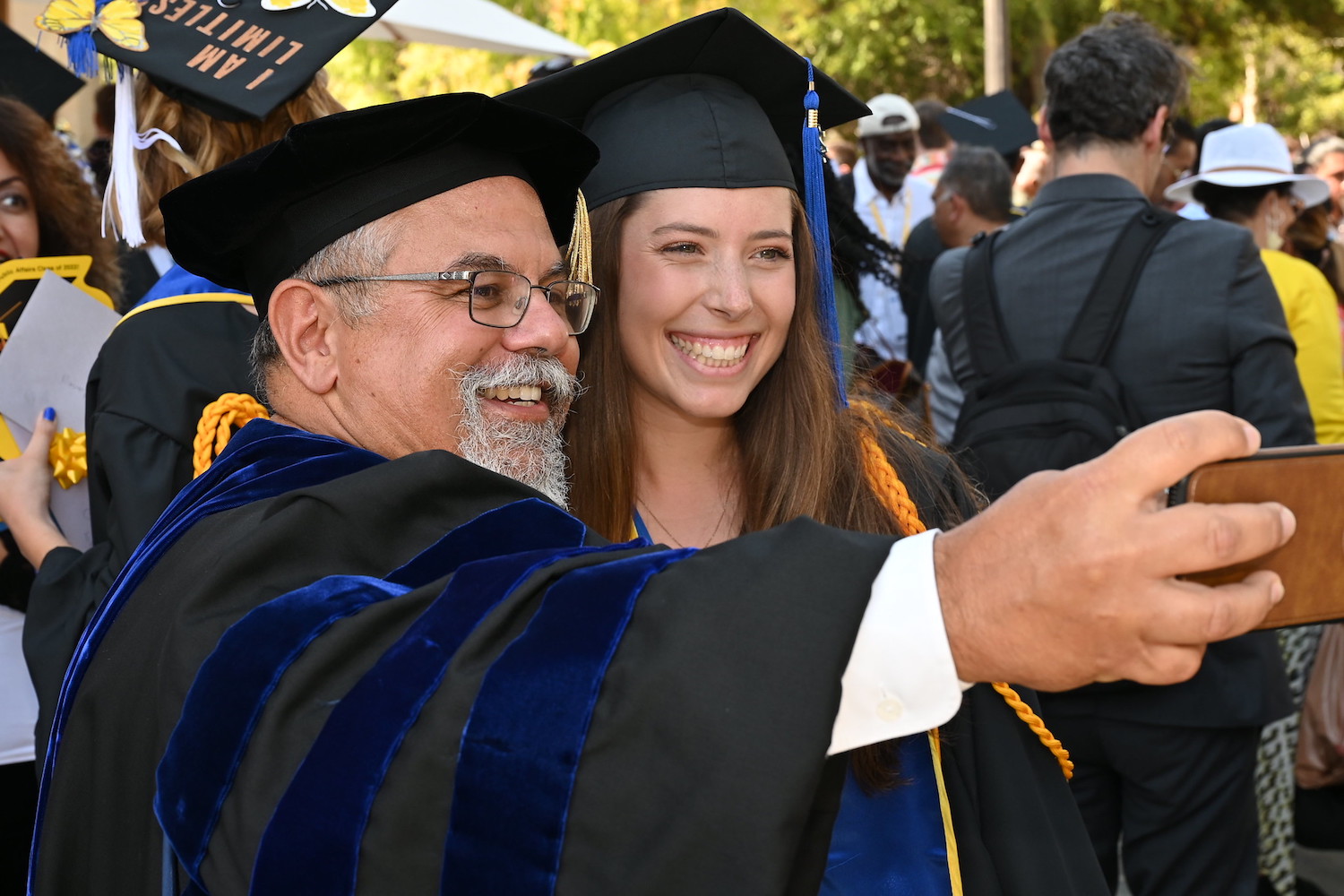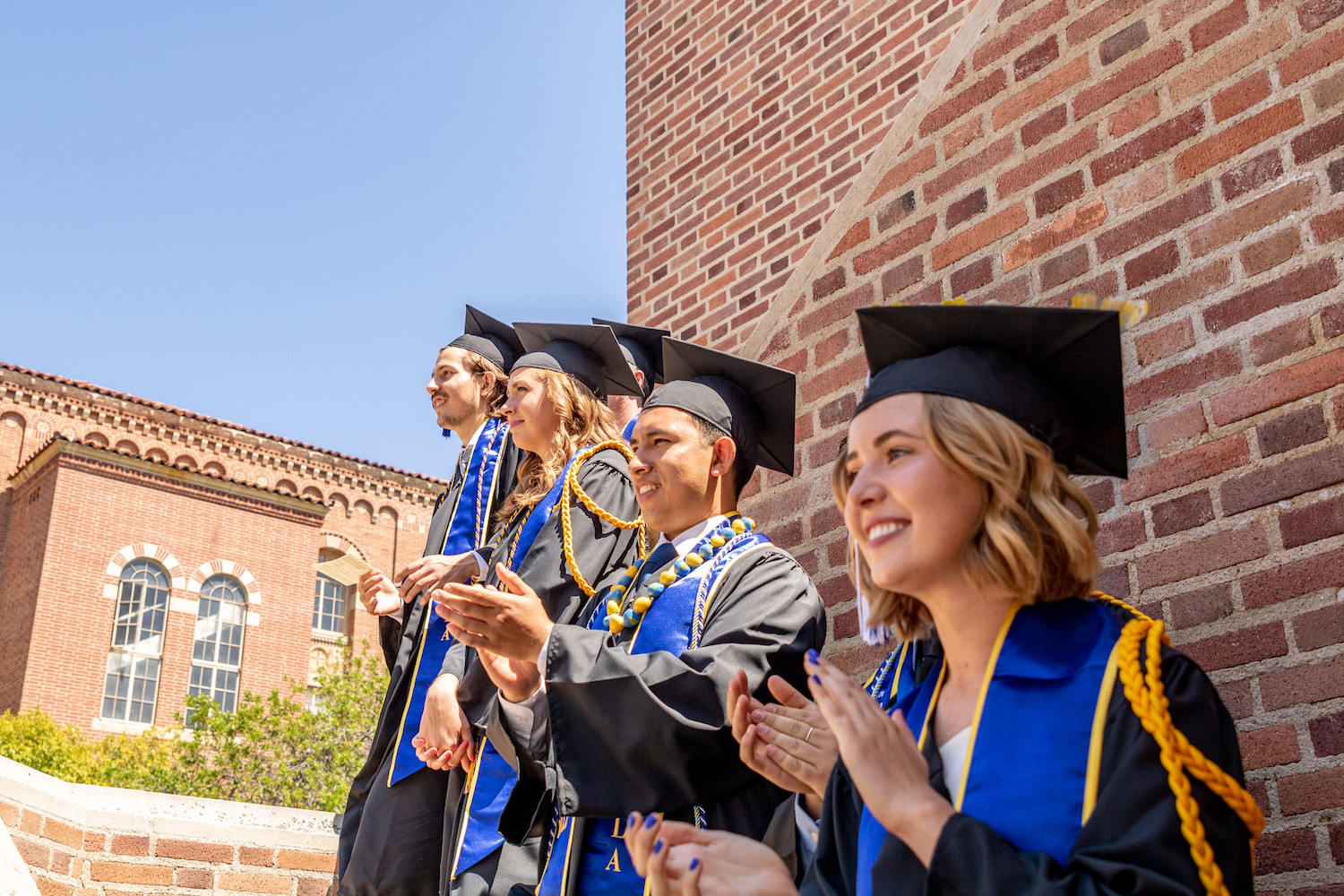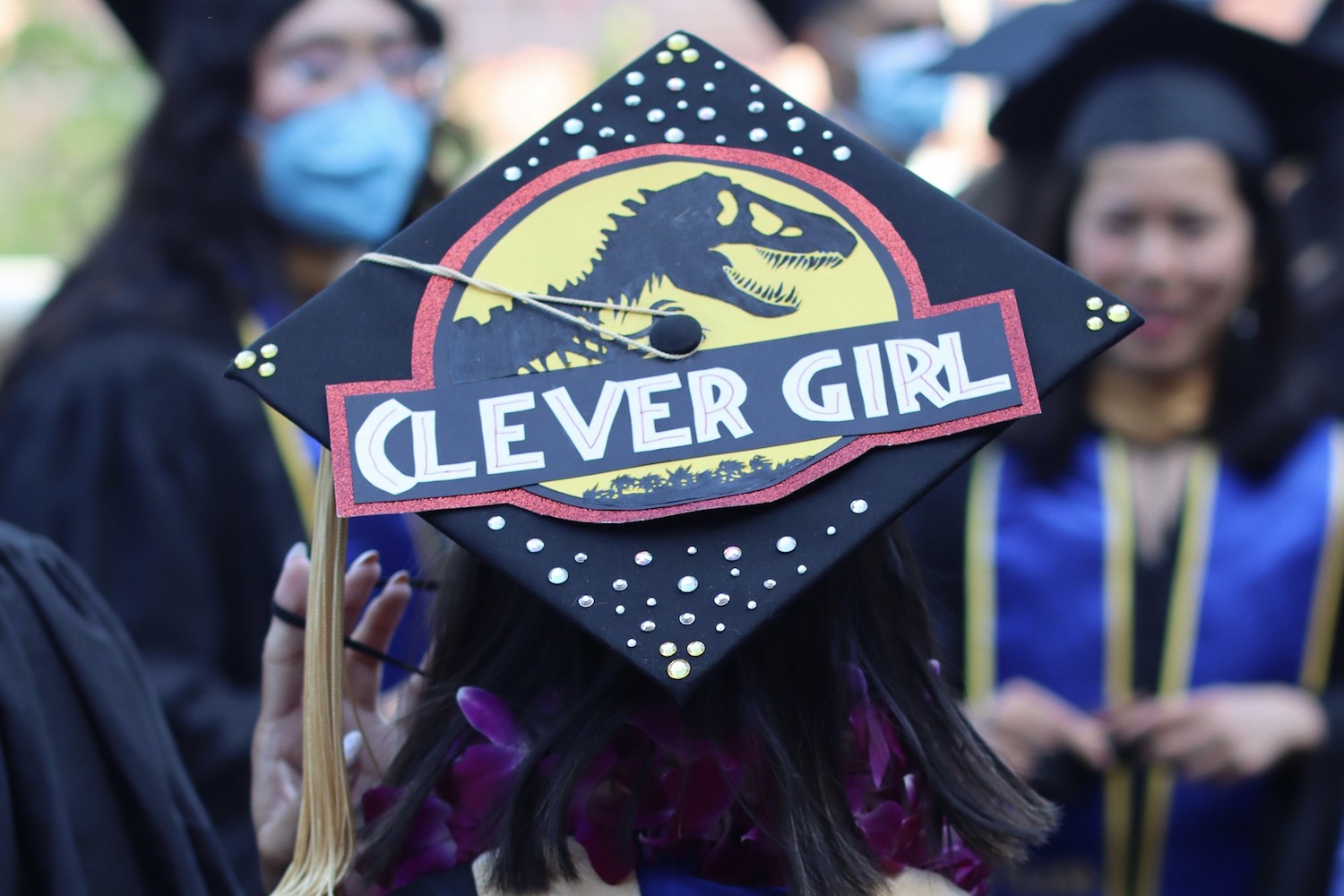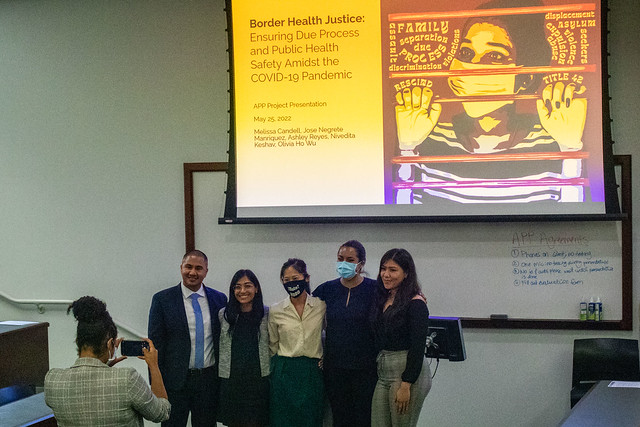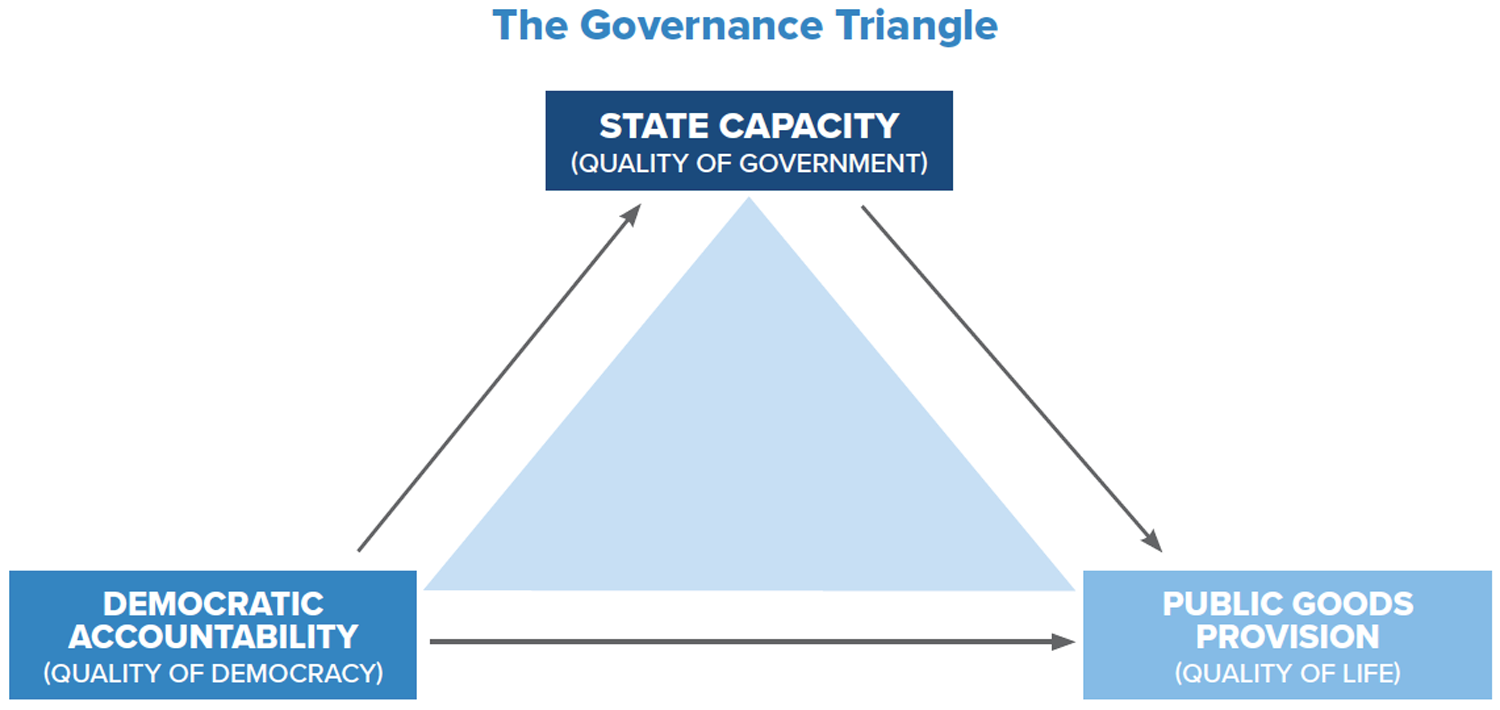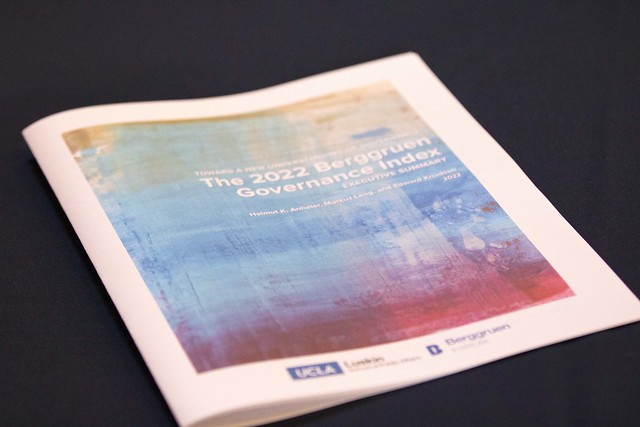In Reparations Debate, UCLA Students Help Amplify Black Californians’ Voices Public policy graduate students use tools of research to help shape history
By Mary Braswell
A small team of UCLA graduate students traveled the state, heard from more than 900 residents, surveyed over 4,400 more and analyzed 1,000-plus pages of transcripts over the past year, all to give ordinary Californians a voice in the conversation about how the government should atone for the devastating legacy of slavery.
The students’ work documented the range of harms that have been suffered by Black Americans over generations and captured viewpoints on what just compensation should look like. In the fall, the team reported its findings at a public meeting of the California Reparations Task Force, which is conducting closely watched deliberations on the best path forward.
The group also just delivered an 80-page report to the state Department of Justice, the culmination of an extraordinary opportunity to use the tools of research to help shape momentous policy decisions in real time.
Through it all, the young Black scholars were deeply affected by the stories they heard and the responsibility they carried.
“I understood the significance of what I was working on,” said Elliot Woods, a second-year master of public policy student at the UCLA Luskin School of Public Affairs. “And all I could think about was that I don’t want to disappoint our ancestors.”
‘The way it is now, it seems like we’re being pushed out. … We’ve lost family homes. We’ve lost generational homes that have been in our families for years.’
— A Black California resident speaking at a community listening session organized by UCLA’s Black Policy Project
The nine-member Reparations Task Force, commissioned by the California Legislature and seated in 2021, quickly determined that community input was vital to its work. So it turned to the UCLA Ralph J. Bunche Center for African American Studies, where public policy and urban planning professor Michael Stoll directs the Black Policy Project.
The task was immense and the deadline tight. Within months, the panel required a comprehensive and data-backed accounting of public opinion from across the California spectrum: from rural and urban communities, from every economic rung and every walk of life.
Stoll proposed that his group also systematically document stories of racial discrimination and record residents’ viewpoints on how the state should respond. And he enlisted three master’s students he knew he could count on: Jendalyn Coulter, who analyzed conversations from 17 online and in-person community listening sessions across the state; Chinyere Nwonye, who studied recorded testimonies, photos, videos and other submissions before developing full oral histories of seven Californians, ages 38 to 88; and Woods, who supervised two surveys to gauge support for cash and non-cash reparations and to capture opinions on who should be eligible.
“When you see people who are curious, excited, capable and committed, and who have the passion, it was an easy call about how to assemble the team. And the research they conducted was spectacular,” Stoll said. The project was the type of work that doctoral students might normally do, he added, and it was completed in a fraction of the time such a large project would typically require.
‘I felt like, growing up, we were made to be ashamed of who we are as Black Americans. … I feel like a lot of Black Americans, they don’t have a sense of purpose because they don’t value their legacy. They don’t value what their families went through.’ — A Hollywood professional interviewed for an oral history
After several weeks of intensive transcribing, coding and analyzing the trove of data they collected, Coulter, Nwonye and Woods worked with Stoll to develop conclusions that will guide the work of the Reparations Task Force. Among them:
- Black Californians concurred that racial bias in education, policing, housing and the workplace has diminished the quality of their lives, at times leading to emotional trauma and physical ailments.
- An overwhelming majority of survey respondents from all races expressed support for reparations: 77% favored non-cash financial support such as housing assistance, debt forgiveness, land grants and community investment; 73% supported non-monetary remedies such as reforming the education and criminal justice systems; and 64% favored direct cash payments.
- Those who were surveyed disagreed somewhat on who should be eligible for reparations: all Black Californians (supported by 30% of respondents); those who can establish that they are the direct descendants of slaves (29%); or those who can demonstrate that they have experienced race-based discrimination (24%).
With the community listening sessions complete, the state task force has asked a team of economists for recommendations on implementing an equitable program of reparations; a final report is due this summer. California lawmakers will then consider how to proceed.
Meanwhile at UCLA, the Black Policy Project has launched a study group to further analyze the findings. Stoll said the results of that new work will not only contribute to the ongoing policy conversation but also give more of the public a chance to parse the findings in different ways.
‘I really do believe if you fix the descendants of slavery in America … it actually allows the U.S. to say and show we were actually willing to clean up our own messes. We were willing to be the country we said that we were when we said liberty and justice for all.’
— An Oakland, California, resident interviewed for an oral history
After the group had delivered its report, Woods reflected on the opportunity to play a part in shaping history.
“We are in this unique and very, very privileged position to work on this as students at UCLA,” he said. “It feels like a lot of weight to carry because we know we have a lot of the nation paying attention to what we’re doing.”
For Nwonye, the experience prompted self-examination about researchers’ role when the subject is personal.
“You always want to maintain that level of professionalism that comes from a sense of objectivity. And there were days when I had to step away from it,” Nwonye said.
“But at the same time, I don’t know that we would have found the things that we found if we were not a Black research team. I don’t know that people would have been as open about telling their stories.”
Coulter, who earned dual master’s degrees in public policy and social welfare in 2022, recalled the anguish she found in the pages of transcripts from months of community listening sessions.
“I can’t even begin to fathom the collective trauma and the stress and just the pain that has been inflicted on the community for so long,” she said. “And it was heartbreaking, as a Black person, to hear the distrust and the hesitancy around the purpose of this. Is this massive effort truly going to resonate with the government? Or will it again fall on deaf ears?”
When Stoll and the students appeared at Los Angeles’ California Science Center in September to preview their findings, audio of some of the interviews they conducted was played for the Reparations Task Force and members of the public. The audience included people who had participated in the project, and they thanked the students for telling their stories.
“Even if nothing else happens,” Nwonye said, “we’ve already done something that is really important: allowing people to have their voices be heard.”
Read “Harm and Repair,” the research team’s report to the California Reparations Task Force.
